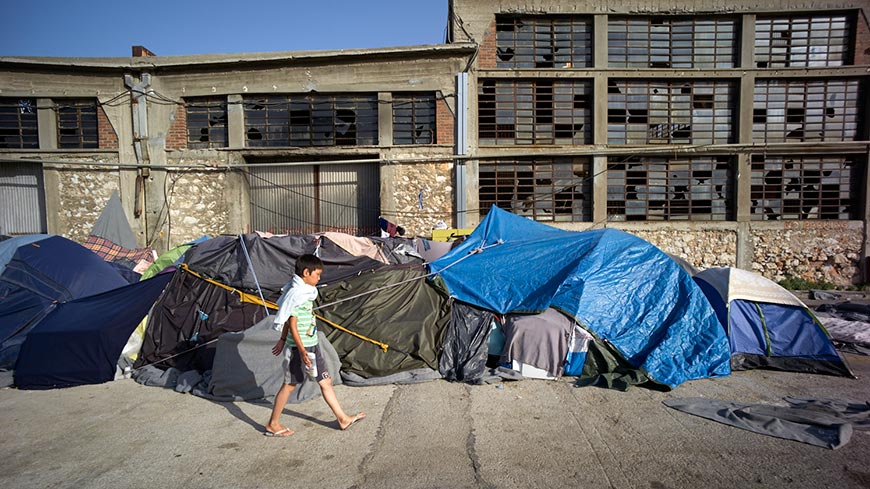One in three of the migrants and asylum seekers crossing between Greece and Turkey is a child. Last year alone, an estimated 300,000 children crossed the Mediterranean fleeing the horror of war and seeking refuge, traumatised by violence and death. Practically all of them have seen their lives shattered, their families separated, their rights to life, education, health and justice put aside.
What Europe can do to address this challenge, to protect migrant children’s rights and ensure their future is the key theme of a conference organised by the French Defender of Human Rights, in co-operation with the European Network of Ombudspersons for Children and the Council of Europe taking place in Paris on 28 June 2016.
The event participants are discussing ways of ensuring children rights’ to education, leisure and quality healthcare. They are also exchanging experiences on the immediate protection of children from the very real risks of human trafficking, violence, sexual abuse and exploitation, as well as placement in detention centres.
Tomáš Boček, Special Representative of the Secretary General on migration and refugees, who spoke during the opening ceremony, said: "Member states should do whatever it takes to keep asylum-seeking and other migrant children out of administrative detention."
The Secretary General of the Council of Europe in March this year proposed a set of priority measures to member States, underlining that children should not be placed in immigration detention centres, apart from in exceptional circumstances and for shortest period of time. Rapid procedures for appointing legal guardians for unaccompanied children, providing suitable and safe accommodation, improving age assessment procedures were also proposed. All these issues will be discussed at the Paris conference.
Improving and accelerating the legal procedures for refugee children, including those related to issuing humanitarian visas and guaranteeing family reunion, are another key theme of the event.
The conference is broadcast live on Tuesday from 9:30 at www.enfantsmigrants.defenseurdesdroits.fr and on social media #enfantsmigrants
Since the outset of the crisis, the Council of Europe has taken an active stance on protecting rights of refugee children. In addition to proposing the set of priority measures, the Council of Europe through its anti-racism commission in May 2016 has issued recommendations to all member States on protecting rights of illegally residing migrants. It specifically urged them to make sure that social services are not under legal obligation to share personal data of illegally residing migrants, with immigration authorities; and to guarantee access to education for all children. Two weeks ago, in mid-June 2016 the Council of Europe launched an urgent monitoring of what 41 states-parties to the Lanzarote Convention do to protect children affected by the refugee crisis from sexual exploitation and abuse. The replies from member States are expected in mid-September, and the findings and recommendations to member States will be published by the end of November.
The Council of Europe supports the conference in Paris as part of the implementation of its Strategy for the Rights of the Child.


